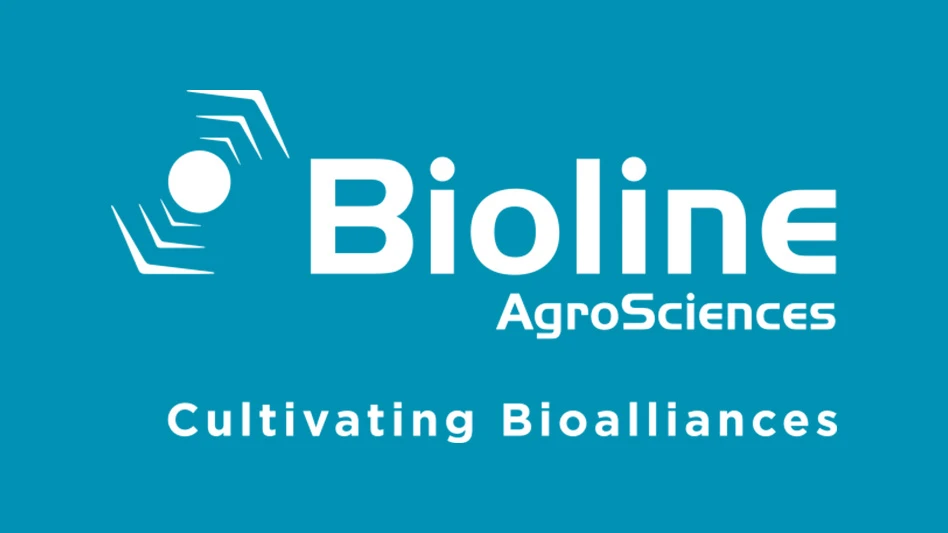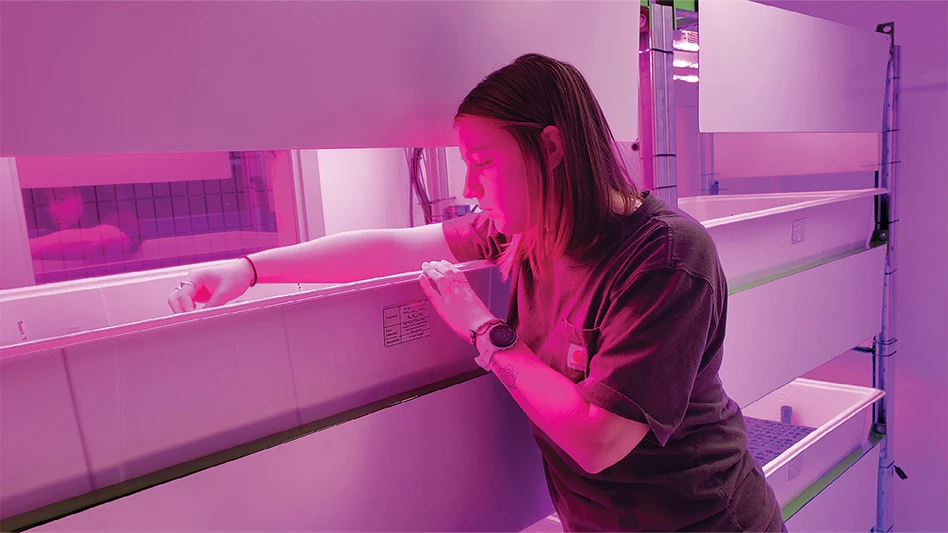 Adult male Duponchelia fovealis in pheromone trap in San Diego County.
Adult male Duponchelia fovealis in pheromone trap in San Diego County.
Photo by Marc Epstein, California Department of Food & AgricultureDuponchelia fovealis detected in 13 states
On May 18, 2010, the Canadian Food Inspection Agency notified Animal and Plant Health Inspection Service about an interception of Duponchelia fovealis larvae in a nursery shipment from San Diego County, Calif. Since this notification, APHIS has worked closely with the California Department of Food & Agriculture and San Diego County to survey the area of concern.
On July 16, APHIS confirmed the detection of D. fovealis at a greenhouse in Vista, Calif. Trace-forward information provided by the affected nursery resulted in the expansion of detection surveys in 26 counties within California. Although detection survey data confirm the presence of D. fovealis in 16 counties in California, APHIS has not received reports of damage caused by this pest.
During the months of September and October, APHIS and State Departments of Agriculture confirmed the presence of D. fovealis in portions of 12 additional states including: Alabama, Arizona, Colorado, Florida, Georgia, Mississippi, North Carolina, Oklahoma, Oregon, South Carolina, Texas and Washington.
D. fovealis, which originated in southern Europe and North Africa, is considered to be a greenhouse pest. It is not very cold tolerant.
Chiquita’s FreshRinse reduces microorganisms on produce
Chiquita Brands has introduced FreshRinse, a produce wash that reduces microorganisms on leafy greens and better maintains freshness. When compared to traditional chlorine sanitizers, FreshRinse has been found to be of superior microbial efficacy. Also with FreshRinse, fresh produce does not undergo the chlorine sanitation process and therefore better retains its natural color and aroma.
Commercial application of FreshRinse has been scientifically validated. It has worked under salad manufacturing conditions and yielded positive consumer experiences.
FreshRinse is acceptable for use on both conventional and organic produce. Its ingredients decompose to environmentally safe and friendly compounds that pose no harm to the environment.
For more: Chiquita Brands International Inc., (513) 784-8000; www.chiquitabrands.com.
How much more valuable would greenhouse employees be if they could identify potential pest or disease problems? Those workers who conduct routine tasks such as watering, spacing and pinching plants would be even more valued if they could also recognize a pest infestation or disease symptoms.
University of Connecticut extension horticulturist and greenhouse IPM specialist Leanne Pundt said one early pest or disease treatment or identifying a problem before disastrous consequences would more than pay for the training costs. Learning to recognize the basic pests, their various life cycles and their natural enemies is a valuable skill for all greenhouse employees. She said it would also be beneficial for more seasoned employees to receive occasional refresher training.
Pundt has prepared a new PowerPoint slide show that can be used to train employees. This extensive presentation includes pictures and descriptions to help identify some common insects and some beneficial insects on sticky cards.
For more: Leanne Pundt, University of Connecticut, (860) 626-6240; www.negreenhouseupdate.info.

Explore the December 2010 Issue
Check out more from this issue and find your next story to read.
Latest from Greenhouse Management
- USDA fires experts on invasive pests, including Asian citrus psyllid, chilli thrips
- CEA Alliance celebrates bipartisan introduction of Supporting Innovation in Agriculture Act
- Dümmen Orange North America celebrating 25th anniversary in 2025
- CEA HERB Part 1: Best management practices for culinary herbs
- Lawsuit challenges new H-2 visa rules
- CEA HERB Part 2: A guide to increasing the sowing density of culinary herbs
- Illinois Landscape Contractors Association changes name to Landscape Illinois
- 2025 Proven Winners Horticulture Scholarship applications now open







